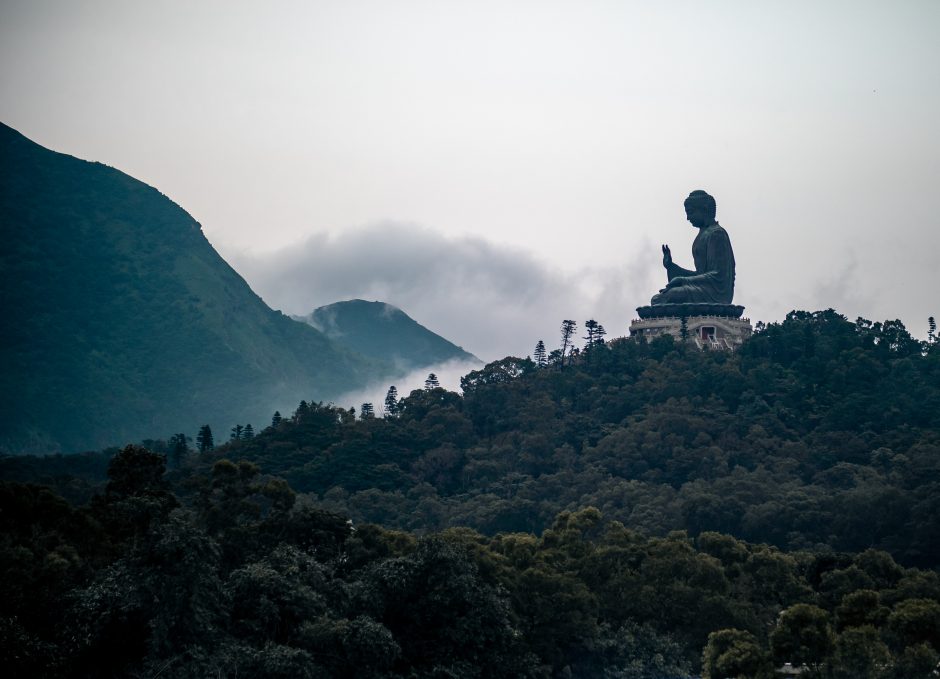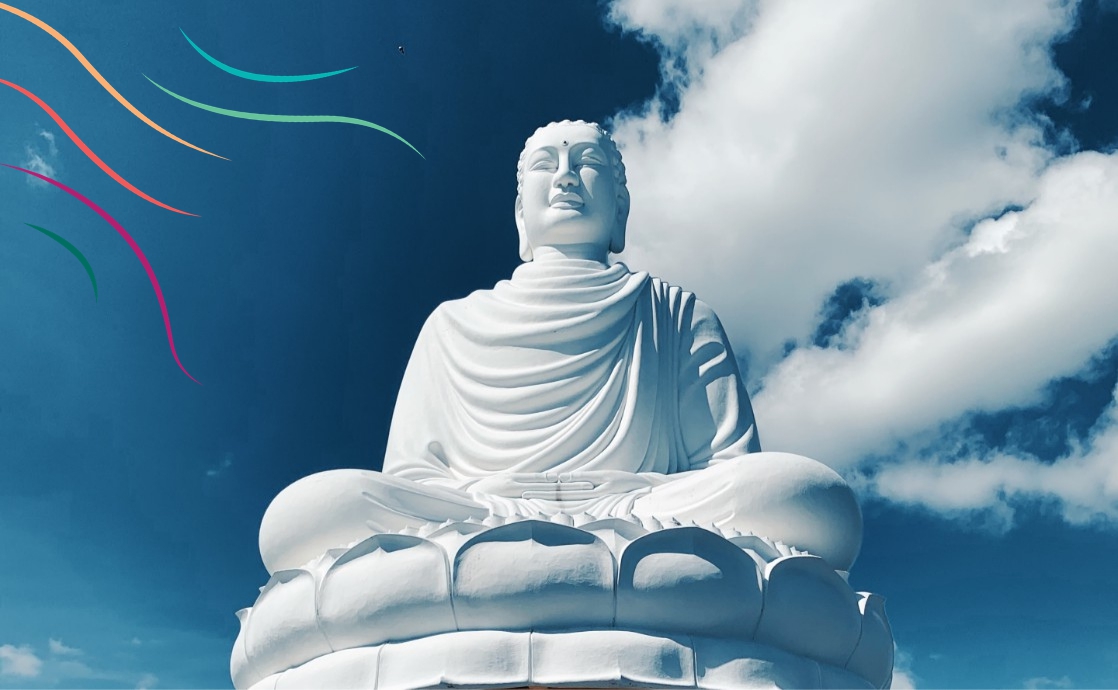The views expressed in our content reflect individual perspectives and do not represent the authoritative views of the Baha'i Faith.
The immensity of Buddhist scripture, including the different versions in different languages, the different interpretations and different practices, have led to many diverse forms of Buddhism.
The current primary distinction is between the Theravada and Mahayana divisions of Buddhism, but there are many divisions and schools in each major form.
Further, both current branches first arose hundreds of years after the Buddha lived, and continued to evolve for centuries. Given this, it is hard to characterize firm differences, save to say that the Theravada branch is more conservative in that it accepts fewer scriptures, but includes the whole of the Pali canon; while the Mahayana branch accepts a few more scriptures, including some very well-known sutras including the Lotus Sutra, Heart Sutra, Diamond Sutra and Amitabha Sutra.
In addition, Mahayana Buddhists generally revere more Bodhisattvas. A rough Western equivalent would be “saints” who have advanced far down the path the Buddha prescribed and who are able to teach others through their example, as explained in this passage from a Baha’i talk Abdu’l-Baha, the son of Baha’u’llah, the prophet and founder of the Baha’i Faith, gave in Paris:
Why do you think that these people were called “Saints”? The word has a very real meaning. A saint is one who leads a life of purity, one who has freed himself from all human weaknesses and imperfections. … If a man’s Divine nature dominates his human nature, we have a saint.
RELATED: How Being a Baha’i Deepened My Definition of Interfaith Relations

Is There a God in Buddhism?
Understanding a few of the historic problems in Buddhist history and the authenticity of its scripture, we can now examine the most basic question about Buddhism: is it theistic? Do Buddhists believe in God?
To even understand the question, the Buddha’s ministry should be seen in historical perspective. The pre-Buddhist Vedic religion in India was in a period of decline when Gautama Buddha appeared. The Buddhist narrative says that the privileged caste of Vedic priests at the time, the brahmins, had become corrupt and knew little of the true spirit of religion. Thus, they could not show others the path to God. A disciple of the Buddha, Vasettha, commented on this situation to the Buddha. The Buddha reportedly replied:
Then you say, too, Vasettha, that the brahmins [priests] bear anger and malice in their hearts, and are sinful and uncontrolled, whilst Brahman [God] is free from anger and malice, and sinless, and has self-mastery. Now can there, then, be concord and likeness between the brahmins and Brahman?
Here, the Buddha is talking about God — Brahman — and says that he is concerned about the character and actions of priests who do not faithfully reflect God’s pure light. Already this puts Buddhism in the realm of theistic religions, as do many similar references in Buddhist scripture.
The Buddha, however, lived in a time and place when people were drowning in a sea of gods and theological parsing. It is reasonable, then, that he would not want to add to the intellectual fray and, sure enough, scripture records that he resisted being drug into these distinctions. In Sutra 63 of the Majjhima-Nikaya, a disciple, Malunkyaputta, asked the Buddha why he would not answer their theological questions. The Buddha replied:
It is as if, Malunkyaputta, a man had been wounded by an arrow thickly smeared with poison, and his friends and companions, his relatives and kinsfolk, were to procure for him a physician or surgeon; and the sick man were to say, “I will not have this arrow taken out until I have learnt whether the man who wounded me belonged to the warrior caste, or to the brahmin caste, or to the agricultural caste, or to the menial caste.
Or again he were to say, “I will not have this arrow taken out until I have learnt the name of the man who wounded me, and to what clan he belongs.
Or again he were to say, “I will not have this arrow taken out until I have learnt whether the man who wounded me was tall, or short, or of middle height … [Many other conditions are mentioned]
That man would die, Malunkyaputta, without ever having learnt this.
In exactly the same way, Malunkyaputta, anyone who should say, “I will not lead the religious life under the Blessed One until the Blessed One shall explain to me either that the world is eternal, or that the world is not eternal, that the world is finite, that the world is infinite, that the soul and the body are identical, that the soul is one thing and the body another, that the saint exists after death, that the saint does not exist after death, that the saint both exists and does not exist after death, that the saint neither exists nor does not exist after death — that person would die, Malunkyaputta, before the Tathagata [one who has come] had ever explained this to him.
As the Buddha explained, continuing: “The religious life,” he said, “does not depend on the dogma.” Dogma “profits not, nor has to do with the fundamentals of religion, nor tends to aversion, absence of passion, cessation, quiescence, the supernatural faculties, supreme wisdom, and Nirvana; therefore have I not explained it.”
RELATED: The 3 Great Early Religions of the East
According to the Buddha, then, the essence of religion — the most useful part — must be about practices that ease suffering and bring people closer to salvation, to nirvana. The Buddha saw the rest as non-essential, and often a cause of idle theological wrangling and disunity.
This seems very similar to the approach of Jesus, who clearly had issues with the theological parsing of Pharisees and Sadducees; and to the approach of the Baha’i teachings, which point out that religion which descends into dogmatic superstition inevitably becomes corrupt:
The beginnings of all great religions were pure; but priests, taking possession of the minds of the people, filled them with dogmas and superstitions, so that religion became gradually corrupt.
From a Baha’i perspective, the Buddha appeared and taught his new Faith to renew the corrupted religion of the past, just as all other prophets and manifestations did.
You May Also Like
Comments

















"Then you say, too, Vasettha, that the brahmins [priests] bear anger and malice in their hearts, and are sinful and uncontrolled, whilst Brahman [God] is free from anger and malice, and sinless, and has self-mastery. Now can there, then, be concord and likeness between the brahmins and Brahman?"
"Then you say, too, Vasettha, that the brahmins [priests] bear anger and malice in their hearts, and are sinful and uncontrolled, whilst Brahman [God] is free from anger and malice, and sinless, and has self-mastery. Now can there, then, be concord and likeness between the brahmins and Brahman?"